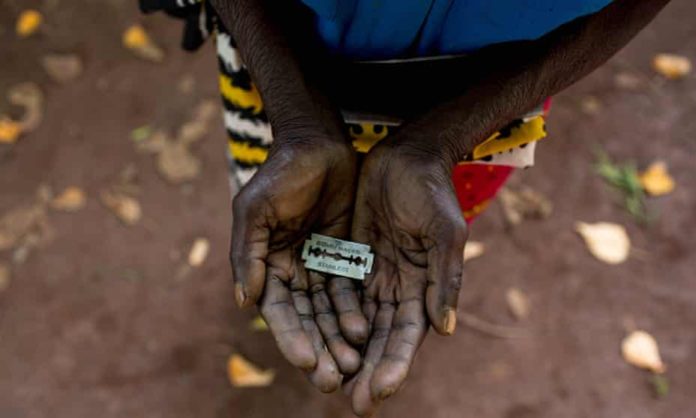Residents and traditional leaders of Grand Cape Mount County particularly Kenjor say the Ministry of Internal Affairs’ decision to ban traditional practices in the County for three years is ‘unfair’ and will challenge it.
Female Genital Mutilation or FGM is widely practice in many parts Liberia but many health experts have since deemed the practice as harmful to many women who usually undergo the practice.
The Western traditional elders and chiefs from Grand Cape Mount County who distanced themselves from the National Traditional Council’s resolution intended to suspend a portion of their traditional practices told a gathering of lawmakers over the weekend that they will resist such a ban by the Ministry of Internal Affairs.
The residents made the defiant disclosure recently on a local radio station in Monrovia just four days when chiefs and elders announced a decision affirming their signatures to document to suspend the practices of Female Genital Mutilation (FGM) immediately.

They described the pronouncement as a showmanship while announcing ongoing traditional practices in the county and disclosed that the investigation that was meant to inform such decision has not been concluded.
According to the Western Region elders and chiefs, they are not going to abide by the recent resolution signed by other chief and elders to evolve the practices of FGM here in Liberia reiterating, “We will not stop practicing FGM in Liberia.”
“No amount of international calls will discourage us from the use of the old practices. We will not stop practicing FGM,” elders and chiefs resolved.
‘Using tradition to intimidate’
Liberia of traditional chiefs and Elder Council, Chief Zanzan Kawor, told reporters in Monrovia that decision to ban the county was based on accusation that some chiefs and elders were using the culture to intimidate peaceful citizens in the county.
some human right advocates in the country have since described the old practices as an act which is a violation of human rights and the health, well-being of women and girls.
The head of delegation of European Union, Laurent Delahousse termed the practice of tradition especially Female Genital Mutilation (FGM) as something “hurtful” and called on those practicing to desist.
“Let us move on to a future where little girls do not have to go through FGM to become women. You do not need to cut a girl to make her a law-abiding, contributing, powerful, successful member of the community,” Amb. Laurent Delahousse added.
More girls and Women affected by FGM
According to Plan International, at least 200 million girls and women globally have undergone a form of female genital mutilation (FGM).
An additional 2 million girls could undergo FGM by 2030 as a result of COVID-19, on top of the 68 million cases which had previously been anticipated.
Analysts say FGM is estimated at 49.8% in Liberia for girls and women aged 15—49. The percentage of women who have been initiated into Sande (and therefore have had FGM) has fallen among younger age cohorts.
Female genital mutilation, is female circumcision, excision or genital cutting, comprises all procedures that involve partial or total removal of the external female genitalia, or other injuries to the genital organs for non-medical reasons, mostly carried out between infancy and age 15.






















